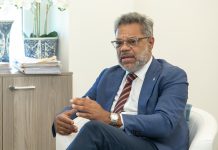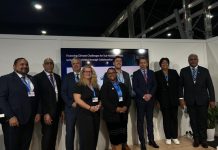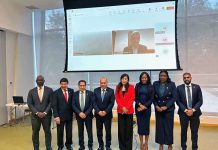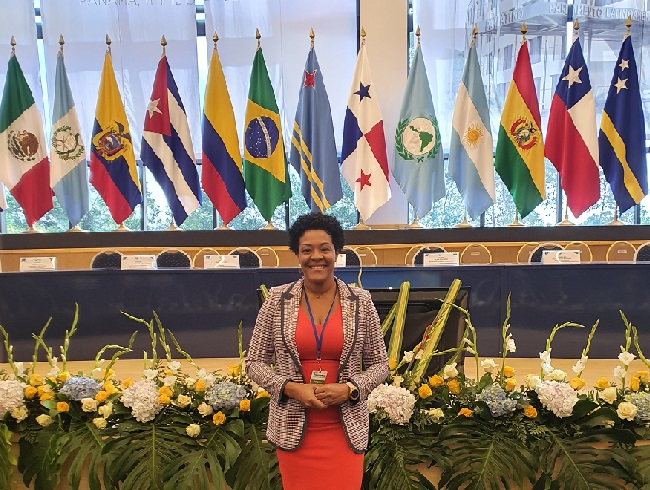PHILIPSBURG, Sint Maarten — On February 14, 2022, the St. Maarten delegation returned from Panama after attending the XXXVI General Assembly for the Parliament of Latin America and the Caribbean (PARLATINO); the first in-person meeting since the start of the COVID 19 pandemic. Member of Parliament Solange Ludmila Duncan attended all sessions and upon return, has submitted a full report to Parliament on the matters discussed, model laws approved and possible action points moving forward.
“When I became a Member of Parliament I joined a variety of Parlatino committees because I do believe that there is value in membership. During my master’s program for instance, much of my research surrounded development policies in Latin America and the Caribbean so I always knew that there were untapped resources or connections that could be of use for the country. We just have not taken as much advantage of those resources as we should,” stated the MP.
During the week of February 7th, Duncan took part in sessions at Parlatino Headquarters for the Committee of Political, Municipal and Integration Affairs. A comprehensive presentation was given by The Economic Commission for Latin America and the Caribbean (ECLAC)on the issues concerning Covid 19 and methods for integrating tourism, migration, health and economic policy solutions. “During this session I gave a short speech, in Spanish, on St. Maarten’s continued vulnerability owing to both COVID 19 and hurricanes. I also mentioned the need for increased cooperation and knowledge sharing via this body. For those of us like myself who studied Spanish in both high school and college, the language is not as great a barrier as some might believe. At the General Assembly there were diplomats from all around the world who gave speeches in their own languages about what….? Cooperation. We need to see beyond our small differences and focus on what makes us similar and go from there,” noted the MP.
In addition to partaking in committee meetings, the parliamentarians present, in the General Assembly, were allowed to vote on the approval of three model laws. These are draft laws of which each country can adapt as their own. MP Duncan has returned with the enthusiasm that two of the model laws, in particular, compliments the work she is doing in Parliament.
“I was happy to approve and obtain a model law on Special Needs and Inclusive Education. I have been a proponent for reforms and advancement in special needs education on St. Maarten since being elected. This model law will now add substance to the amendments to our education laws that I am working on as it concerns the rights of students who require additional support for special and extraordinary needs.”
The MP plans to adapt a second model law presented at the General Assembly on the prevention and reduction of marine contamination. Biodiversity and environmental protection in the region were important themes during the General Assembly. “Although St. Maarten is making progress as it concerns green policies, as a Parliament, I believe that we have an important job in legislating to protect and preserve our natural heritage.; a heritage that has been overlooked for far too long. This model law focuses on protecting our oceans and lays out the various responsibilities of all stakeholders, in addition to a number of key components.” added the MP.
In addition to legislative amendments, MP Duncan will also be sending letters to various Ministers concerning matters that have arisen from discussions at Parlatino. These matters include poverty alleviation, environmental matters, public management and education. The MP has come to the conclusion that although spending should be limited as it concerns travel for such meetings, membership to PARLATINO is worthwhile and valuable; once utilized effectively.
“I am a regionalist. This is why I asked the Government about securing OECS membership last year and this is why I joined the PARLATINO committees when I joined Parliament. St. Maarten is a beacon of hope for diversity and multi-cultural politics. We should not only be a part of, but tap into the resources offered by, all political or economic organizations within our region. This is also why I believe that French and Spanish should be taught in elementary schools. If we only knew how much we could gain from, but also offer to, organizations like Parlatino within our region, we would be able to more effectively solve many of our national policy dilemmas.’” concluded Duncan.






























